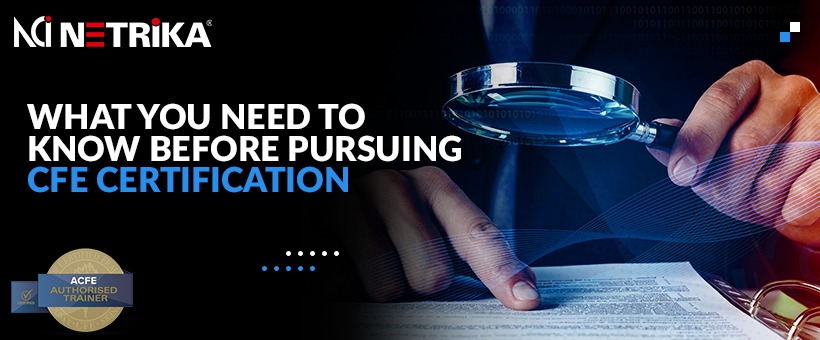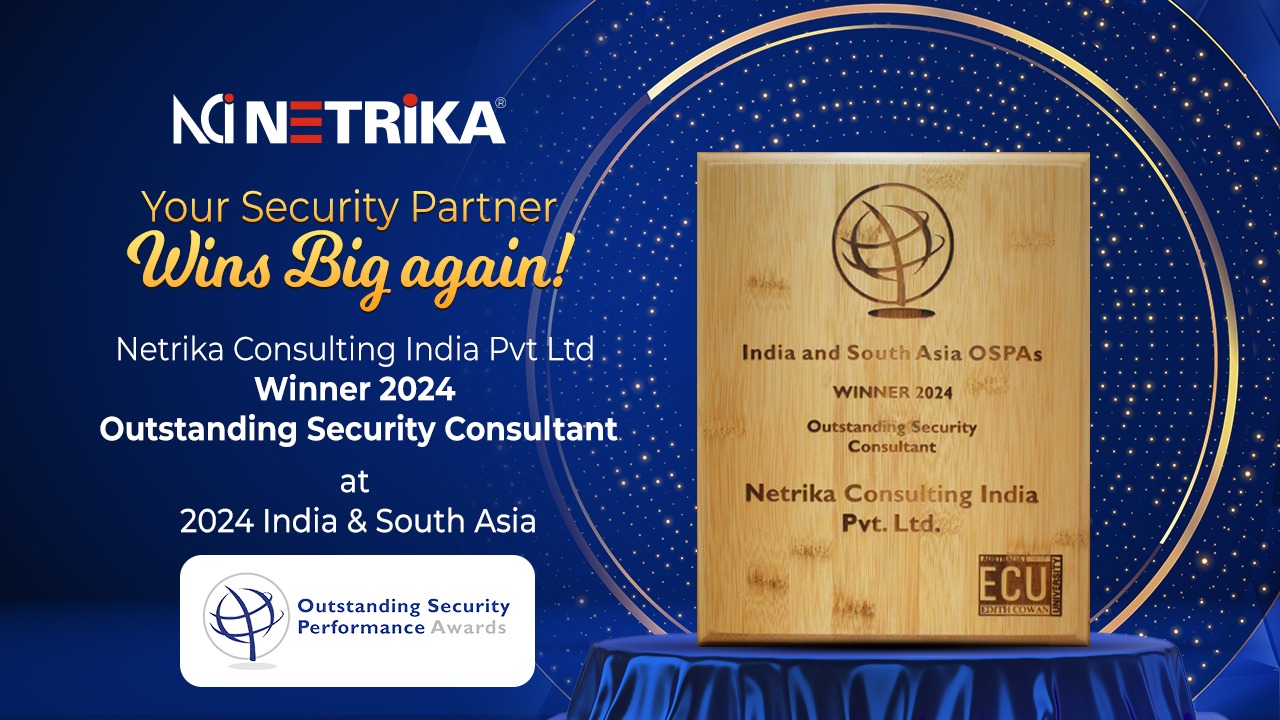News & Events
What You Need to Know Before Pursuing CFE Certification
- April 10, 2024
- Posted by: marketing@netrika.com
- Category: Blogs

What You Need to Know Before Pursuing CFE Certification
Obtaining CFE certification involves having the right experience, education, ethics, and dedication to career growth. Meeting the criteria and finishing the certification process allows professionals to obtain the necessary expertise, abilities, and recognition to succeed in the ever-evolving and demanding field of fraud investigation.
The main areas of a CFE certification exam include Fraud Prevention and Deterrence, Financial transactions, Fraud schemes, and Investigation & Law. Candidates must pass all four test categories to successfully obtain the certified fraud examiner certification.
The CFE certification exam comprises multiple-choice questions and a candidate has two and a half hours for each test category, and every part contains a total of 125 questions. The certified internal auditor exam has three parts:
Part 1: The Essentials of Internal Auditing
Part 2: Practice of Internal Auditing
Part 3: Business Knowledge for Internal Auditing..read more
Here is what more information you need to know before pursuing CFE certification
- Relevant Experience: CFE certification requires at least two years of practical experience in fraud examination-related fields, for example, auditing, accountancy, law enforcement, and criminology. It is meant to ensure that candidates have a strong foundation in principles and concepts relating to fraud before they can sit for the exams.
- Educational Background: To obtain the CFE certification, a professional should have a solid educational background with bachelor’s in accounting, finance, or business administration.
- Commitment to Ethical Conduct: Ethical values are fundamental aspects of the CFE profession. Thus, those seeking such certifications must maintain the highest levels of ethical behavior and professionalism. The CFE Code of Professional Ethics outlines standards and guidelines that should guide all practitioners in this field.
- Continuing Professional Education: To maintain CFE certification, professionals must engage in continuous education throughout their career trajectory. This involves earning continuing professional education (CPE) annually to keep up with the emerging trends in fraud, changing laws, and best practices in the field of fraud prevention and detection.
- Membership in ACFE: The Association of Certified Fraud Examiners (ACFE), which is the world’s largest anti-fraud organization, awards the CFE certification. Before applying for their CFE designation all candidates must become members of ACFE. Membership in the ACFE means access to several valuable resources, networking opportunities, and professional development programs for fraud examiners.
- Career Opportunities: Getting certified as a CFE can open many doors in fraud examination or forensic accounting. They are capable of working in various sectors such as banking, insurance, government, and consulting among others where they play vital roles in unearthing, discouraging, and averting fraudulent activities.
- Professional Network: Being a CFE allows one to interact with a worldwide network of fellow professionals like other CFEs, law enforcement officers, regulatory bodies, and industry experts. Networking with fellow professionals creates room for the exchange of ideas, best practices sharing, and teamwork opportunities for fraud investigations & prevention.read more
Pursue your dream of obtaining CFE certification with Netrika Consulting’s expert-led CFE course
Netrika collaborates with ACFE as the only authorized partner in India to assist professionals in successfully passing the CFE test while expanding their professional exposure and reputation, as well as raising their marketability and job security overseas.
The CFE certification training, provided by Netrika Consulting, will address fraud risk management from several perspectives. You will learn how to identify, assess, and control fraud risks as well as how to instill a culture of anti-fraud and raise awareness of fraud within your organization. Furthermore, you will learn how to design an internal control system to address specific fraud risks and what to do if fraud is detected.

